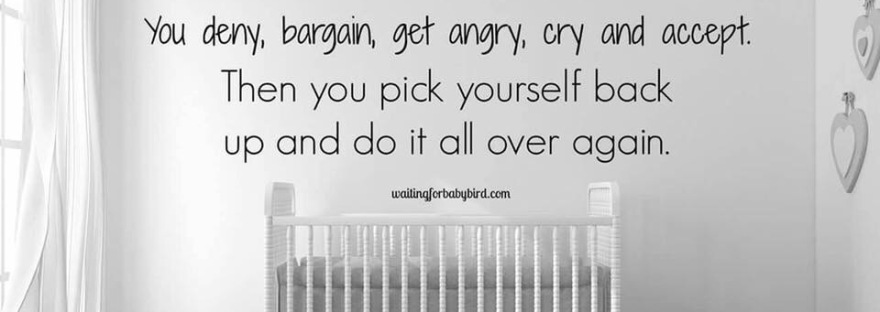I have often struggled with feeling broken and betrayed by my body.
It began with our struggle with infertility and my anxiety, when I felt that because my body would not carry a child, that not only was I broken, that I wasn’t fulfilling my vocation as a woman and spouse.
When I became a mother, during my pregnancy I thought to myself, “now, finally, I am healed.” As I passed each milestone, and birth came closer and closer, I let go of those feelings of brokenness and rejoiced in my body. My body was creating life, and I rejoiced in the pains and struggles of pregnancy, because I no longer felt betrayed by my body.
I thought that feeling of brokenness and betrayal by my body would change definitively with my daughter’s birth. I thought her birth would heal that wound, the feeling that my body had betrayed me.
And yet, after Madeleine’s birth, that wound remained.
I was a mother now. Everything we had prayed for had happened. Her birth was beautiful. Madeleine was even born on her due date, the feast of Our Lady of Mt. Carmel after I’d prayed a novena to Our Lady of Mt. Carmel that she would arrive on time.
And yet, in all that joy, I was drowning.
My body was a stranger to me. Nothing prepared me for how different my body felt to me after Madeleine’s birth. And then on top of that, Madeleine would scream when I tried to feed her. It sometimes took an hour and a half just to feed her.
It was then that I started to notice my hands.
I remember a reflection during our marriage prep that asked you to hold your betrothed’s hands. It asked you think about how these hands, the hands holding your own, would be the hands to care for you when you were sick, to comfort you in times of difficulty, to hold and love your children.
After Madeleine’s birth, my hands ached. They were constantly stiff and sore. I blamed having to take hours to nurse Madeleine and constantly hold her in the same position. But it kept getting worse. I thought perhaps my De Quervains Syndrome (like carpal tunnel) was returning and was sure that after a time it would get better.
Then my shoulders started to ache. I blamed my ring sling, and stopped wearing it. But the pain remained. I couldn’t lift my hands above my head without pain. I blamed having to sit in the same position for hours to feed Madeleine.
But then one night, Madeleine woke up crying. She needed to be fed. And I struggled to get to her.
I struggled to move myself out of bed. My whole body was stiff and sore. Madeleine’s crying became louder and louder. I felt terrible. And then, when I finally got to her, I realized I couldn’t pick my baby up out of her crib.
I woke up Nicholas, who brought Madeleine to me in the rocking chair. I could barely hold her, even with my nursing pillow. It was that night that I realized something was terribly wrong.
About two months after that night when my hands refused to work (this past November), I was diagnosed with Rheumatoid Arthritis.
The doctor explained that my immune system had started to attack my joints. I would need to be on an immunosuppressant indefinitely. She explained that it was probably my pregnancy that had triggered the autoimmune disease.
And once again, I felt betrayed by my body.
My pregnancy and Madeleine’s birth had started to heal the wounds of betrayal I had felt after almost two years of infertility. Suddenly, those wounds were cut open again. My body was literally attacking itself. It wasn’t functioning as it should, again, and it was affecting my ability to care for my daughter. I was angry, I was hurt, I was broken.
But if there’s anything I’ve learned from infertility, it is that there is beauty in brokenness.
My body had betrayed me again, but I decided that wouldn’t stop me from being a good mother, from being a good wife, from being a daughter of God. Instead, I tried to turn to the Cross. I repeated to myself in times of weakness, “this is my body, given up for you.” I repeated it when it was difficult to pick up my daughter. I repeated it when I struggled to feed my daughter because my hands ached. I repeated it when I woke in the middle of the night to Madeleine crying, needing me, and my body was stiff again. I repeated it when I looked in the mirror and was unhappy with my body because my arthritis had prevented me from exercising until my medication started working.
I decided that my RA would not change how I parent, would not change my fitness goals, would not change my vocation, would not change my faith. I began researching ways to heal my body through diet and exercise. I have set a goal for myself to run a Spartan race either this summer or fall. I have decided to show my daughter that having a chronic illness does not mean that you cannot be active, that you cannot do extraordinary things, that you cannot lead a life of adventure and faith.
I started trying to take care of myself. I began a new diet about two months ago to help with inflammation. I purchased an exercise program to help heal and strengthen my core from pregnancy. I’m going to be blogging more often as part of self care and posting updates about my progress with training and treatment of RA. I’ve been trying to pray more often and focus on joy and acceptance.
We cannot choose our crosses. I do not know yet what purpose this cross carries, but I know that when we received news of my diagnosis and told my husband, that he had a profound sense of peace. “We need this,” he said.
I remember the reflection given during our marriage preparation now whenever I look at my hands and the hands of my husband. For although my hands are sometimes inflamed and in pain, I know that Christ has gifted me my husband to be my hands and feet when my own will not work. Before I was a mother, I felt broken because of our struggles to have a child. I felt betrayed by my own body, angry that my body wasn’t working as it ought, crippled by my body’s brokenness. Now, I feel broken because there are some days when my whole body aches. And yet, I know that I need this. I need to remember that I am broken, that I am weak, that I am wounded. Because in my brokenness, I am reminded to look at Christ on the Cross.
God gives us what we need. He challenges us, and allows us suffering so that we might realize our littleness. So that we might turn to the Cross, see Christ bloody, bruised, and beaten, and know in our hearts the great sacrificial love of Christ for us. Christ on the Cross shows us the profound depths of God’s love for us, and will always stand as a reminder to us all that there is immense beauty in the broken.













